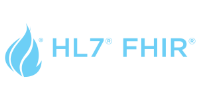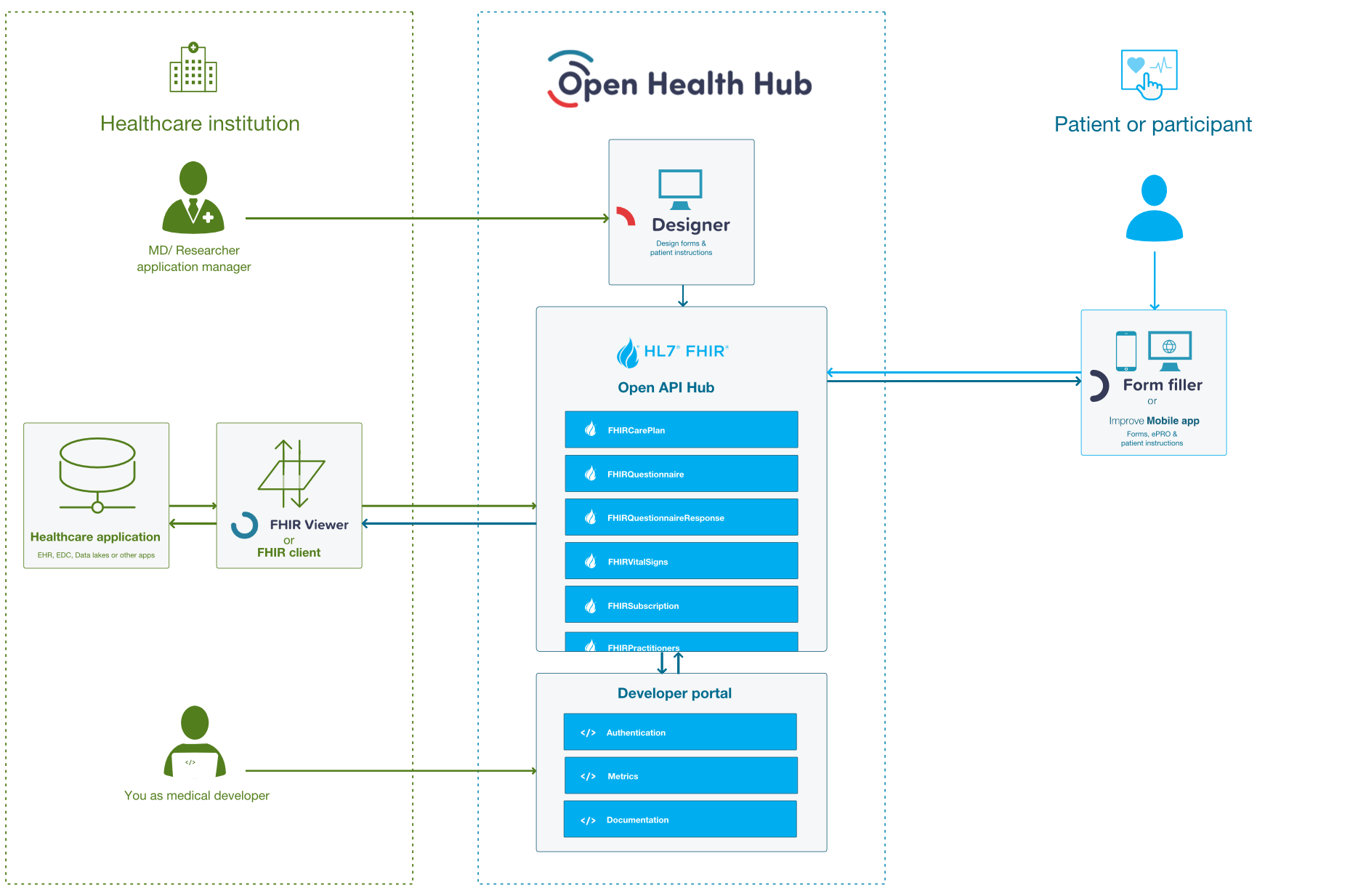Open Health Hub FHIR Implementation Guide - Local Development build (v0.1.0) built by the FHIR (HL7® FHIR® Standard) Build Tools. See the Directory of published versions
Home
| Official URL: https://api.openhealthhub.com/OpenHealthhub/fhir/4/ImplementationGuide/ohh-fhir | Version: 0.1.0 | |||
| Active as of 2026-02-12 | Computable Name: OpenHealthHub_FHIR | |||
Open Health Hub FHIR

Welcome to the Open Health Hub Implementation guide! You can use our FHIR API to access the Open Health Hub Open API endpoints based on HL7 FHIR, which can interact with the Open Health Hub and SMART on FHIR applications for questionnaires and information.
This way you can integrate our solution for digital forms in your own platform, portal or application. This saves both healthcare professionals and patients a lot of time. You can also become an Open HealthHub partner and get access to our technical expertise, training program and more to support your integration.
Getting started
- Connecting using FHIR Clients. This section describes:
- how to get access to the Open Health Hub FHIR API,
- the different kinds of clients are available,
- requirements to connect to the Open Health Hub FHIR API
- Open Health Hub to FHIR mapping: describes the mapping of Open Health Hub’s terminology to the FHIR terminology.
